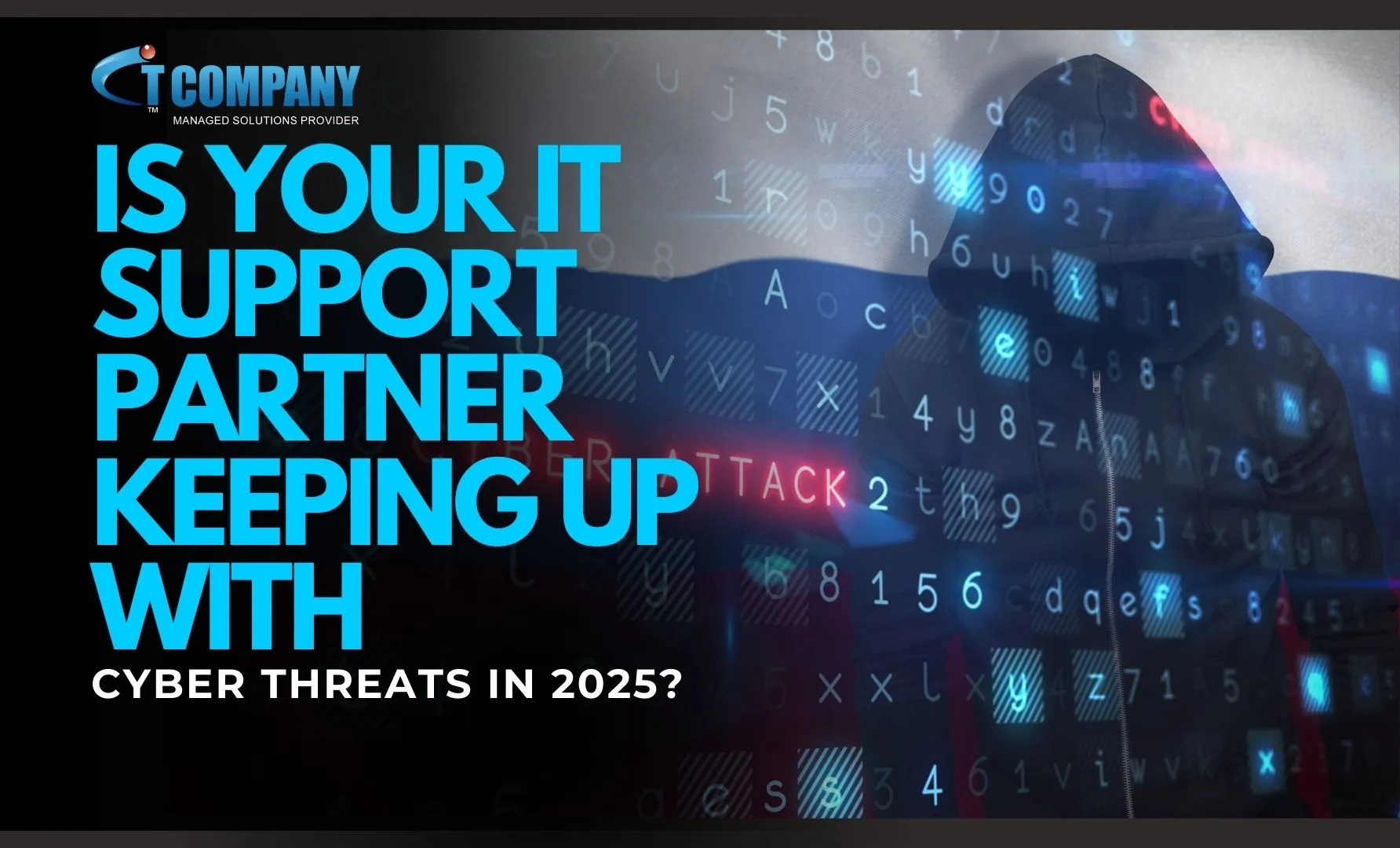Introduction
Cyber threats are growing more advanced every year, and 2025 is no exception. From AI-powered phishing attacks to ransomware targeting cloud infrastructure, businesses are under constant pressure to stay ahead. That raises the critical question: Is Your IT Support Partner Keeping Up with Cyber Threats in 2025? Your IT partner is more than just a help desk—they’re the frontline defense against hackers, data breaches, and costly downtime. Choosing the right partner, like IT Company, ensures your business has modern cybersecurity measures, proactive monitoring, and reliable support when threats arise. In this blog, we’ll explore how cyber threats are evolving, the role IT partners should play, and how to evaluate whether yours is keeping pace.The Rising Cybersecurity Landscape in 2025
Key Cyber Threats Businesses Face Today
Businesses now face a mix of old and new cyber threats that are becoming more dangerous:- AI-driven phishing emails that are nearly indistinguishable from legitimate communications.
- Ransomware-as-a-service that lowers the barrier for cybercriminals.
- Insider threats where employees unknowingly compromise data security.
- Cloud-targeted attacks exploiting weak configurations in SaaS platforms.
How AI and Automation Are Changing Cybercrime
Hackers aren’t working alone anymore. They’re using AI to:- Generate convincing fake messages.
- Automate large-scale attacks.
- Evade detection from outdated security tools.
Why Traditional IT Security Approaches No Longer Work
Firewalls and antivirus alone aren’t enough anymore. Threats move too quickly, and attackers exploit zero-day vulnerabilities before patches are available. Modern businesses need continuous monitoring, vulnerability testing, and layered defenses to stay safe.The Critical Role of IT Support Partners
Beyond Troubleshooting: IT Partners as Cybersecurity Guardians
In 2025, IT support is no longer just about fixing broken printers or resetting passwords. Your IT partner must act as a cybersecurity guardian—deploying defenses, monitoring for intrusions, and training your staff to recognize threats.Proactive vs. Reactive IT Support Strategies
A reactive IT partner waits until after your systems are breached to take action. A proactive IT partner, like IT Company, uses predictive tools, real-time monitoring, and preventative patch management to block attacks before they cause damage. Proactive support not only protects your data but also ensures compliance and business continuity.Signs Your IT Support Partner May Be Falling Behind
Lack of Advanced Threat Detection Tools
If your IT partner isn’t offering next-gen antivirus, SIEM tools, or AI-driven monitoring, you’re at risk. Outdated tools simply can’t compete with modern cybercriminals.Outdated Patch Management and Software Updates
Unpatched systems remain one of the biggest causes of breaches. If your partner doesn’t have strict patching policies, they’re exposing your business to unnecessary risks.Poor Communication and Incident Response Readiness
When an incident happens, speed matters. A partner that doesn’t offer 24/7 response or delays in updating you on risks is not keeping up with 2025 standards. IT Company ensures transparency with clients and fast action during incidents.What Modern IT Support Should Offer in 2025
24/7 Monitoring and Real-Time Threat Intelligence
Hackers don’t keep office hours, so neither should your IT partner. Constant monitoring, coupled with real-time threat feeds, ensures suspicious activity is flagged immediately.Strong Backup and Disaster Recovery Strategies
Ransomware can cripple a business, but reliable cloud backup and disaster recovery ensure your operations can continue. IT Company integrates advanced DR solutions tailored to business needs.Compliance Support (GDPR, HIPAA, etc.)
With regulations tightening, businesses need IT partners who understand compliance requirements. Whether it’s data protection or industry-specific rules, IT Company provides ongoing compliance support.How to Evaluate Your IT Support Partner
Questions to Ask During a Cybersecurity Review
- Do you provide 24/7 security monitoring?
- How do you handle patch management and updates?
- What’s your incident response process?
- Do you offer cybersecurity awareness training?
- How often do you conduct risk assessments?
Benchmarks and Industry Certifications to Look For
Reputable IT partners should hold certifications like:- ISO 27001
- Microsoft Gold Partner
- CISSP-certified staff
- SOC 2 compliance
Case Study: Businesses That Upgraded Their IT Support
One mid-sized company partnered with IT Company after suffering repeated downtime and compliance issues. With proactive monitoring, stronger backups, and incident response readiness, they not only avoided future breaches but also improved efficiency across their operations.The Future of Cybersecurity and IT Partnerships
Emerging Technologies (Zero Trust, AI-Driven Security)
Zero Trust security models and AI-powered monitoring are no longer futuristic—they’re becoming standard. Your IT partner should already be exploring these technologies to keep you ahead of cybercriminals.The Importance of Continuous Training and Awareness
Technology alone isn’t enough. Employees remain the weakest link. IT partners like IT Company offer ongoing staff training, helping employees recognize phishing attempts and follow best practices.FAQs
Why should I worry if my IT partner isn’t proactive with cybersecurity?
A reactive partner leaves your business vulnerable. A proactive partner, such as IT Company, prevents costly breaches before they occur.
What are the biggest cyber threats in 2025?
Ransomware, AI-powered phishing, cloud exploits, and insider threats are the most pressing risks businesses face.
How does IT Company help with compliance requirements?
IT Company ensures businesses meet industry standards like GDPR, HIPAA, and SOC 2 through audits, reporting, and compliance-focused security strategies.
Subscribe
Login
0 Comments

